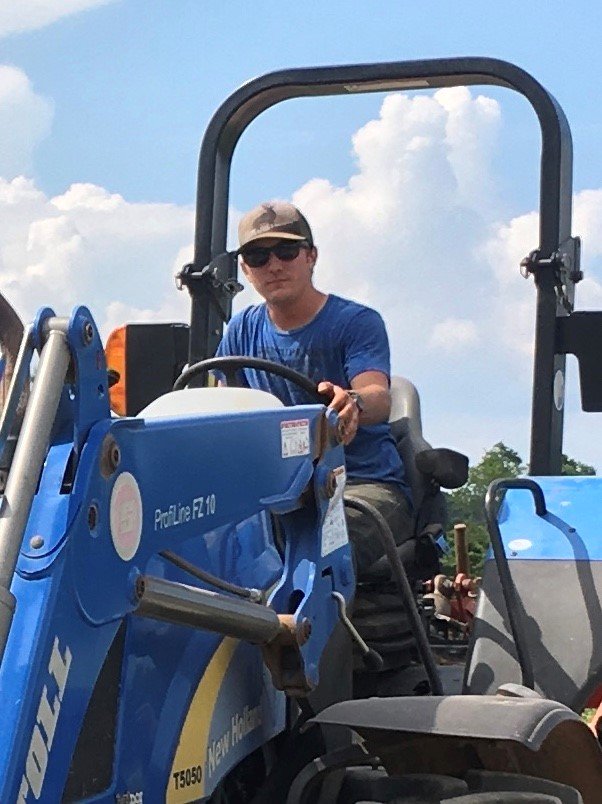Though seasons may change, and even the names of the farms we work, weather is the constant companion of all growers. Weather is fickle. Weather can be friend, or foe, or both in the same day. Most all, of she is inescapable. The sum of all her many faces, the pattern she creates, is climate. Generally, the climate in our region is considered “humid sub-tropical”. Farmers around here will also tell you that on a USDA Zone Map, we’re currently designated as 6b, because our average annual extreme minimum temperature doesn’t go below 0 and -5 degrees. What does all that really mean? We can grow peppers and eggplants like champions, but our spring broccoli might flower from heat exposure, and there will never be locally grown citrus fruit in your CSA.
As the world-wide climate grows warmer, the weather we see here at home affects our farm in subtle (and not so subtle) ways. Last summer, the rain seemed endless. Inch after inch filled rain gauges as our tractors sat idle next to fields that never dried enough to cultivate. Watermelons burst and disease spread through greenhouses. Some days, we harvested more mud than veggies. This year has been a strange reversal, one of hustling irrigation pumps and hoses as weeks go by with no rain accumulation. The “real feel” temperatures reached into the 120s. Dry soil crumbled underneath our boots like moon dust. When it did rain, it rained in a deluge, without warning. This variability, the wild swing from dry to wet, is a symptom of the changing climate; it’s a symptom that farmers dread.
Surviving unpredictable change requires adaptability. Its here that small, diversified farming operations like our own have a competitive edge over larger commercial ag enterprises. Farms that grow only one or two crops, in mass quantities, are more prone to negative climate impacts because all their crops have the same climate vulnerabilities. Many of the sustainable farming practices we hold dear, like reduced tillage, crop rotation and cover cropping, and pasture forage for livestock, help shield us from the damaging effects of weather. In the long run, they also reduce our own carbon emissions and help us to help the ecosystem we farm within.
By filling your kitchens with foods from Willowsford Farm and those like us, you choose to support our small part in addressing climate change. You also make it possible, through risk-sharing business models like CSA, for us to continue prioritizing the health and well-being of the land in our community instead of just its productive value. You are the ultimate drivers of positive change in the face of increasing climate uncertainty!
This week, as the United Nations in New York City hosts Climate Week and debates courses of action to combat climate change, we pause in our work to thank all of you. Because change starts at home, and small ripples go far. Thank you for minimizing the carbon emissions created by transporting your food, for joining us in a celebration of what grows each different season, for voting with your dollars in favor of organic farming. As our CSA grows each year, we ride a wave of hope and awe inspired by our Farm-ily. Change is coming; let’s keep working together to make the changes in our community positive ones.
Eat Well Today and Be Well Always,
Ashley, Collin, John, Lex, Rory, Nate, James, Alexandra, the gaggle of puppies, the flock of hens, and the sounder of swine




